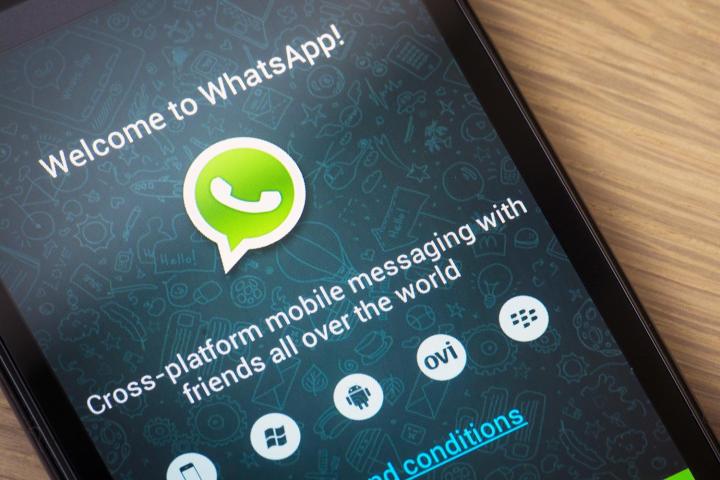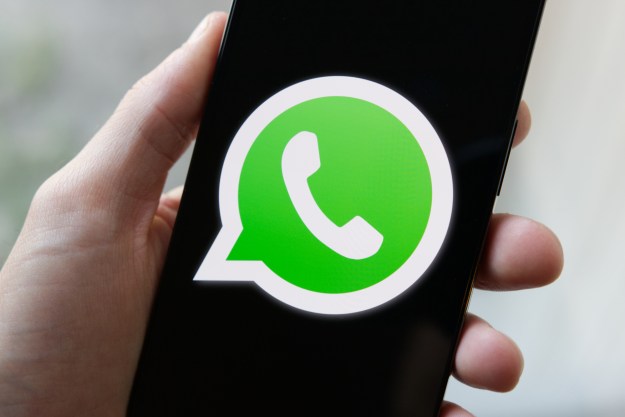
With more than 1.5 billion monthly users, it’s safe to say that WhatsApp has become one of the most popular messaging apps in existence. Unlike proprietary services like iMessage, which is only available on compatible Apple devices, the Facebook-owned app allows users to send text, voice, and video messages across a variety of devices, as well as images and other media.
With so many people using the service regularly, however, there are bound to be a few hiccups, one of which is the large amount of spam plaguing the app. Some messages attempt to scrounge your personal data or install malware, while others try to trick you into paying a fee in order to continue using the app. To help you identify and handle the deluge of unsolicited messages — whether from unknown users or contacts whose accounts have been hacked — we’ve put together a few tips.
Keep an eye out for misspellings and grammatical errors
One of the easiest ways to tell the difference between a hoax and a legitimate offer is to watch out for poor grammar and spelling. If an offer is legit, chances are it will have gone through rigorous editing and marketing meetings before being released. Does the message constantly misuse words like “your” and “you’re?” Is there a lot of unnecessary punctuation or random capitalization? If you receive a message from a contact, does the writing style seem different than the messages you typically receive from said contact? If so, chances are it’s spam.
Stop and think
While presentation is a good place to start, it’s not the only thing you should consider if you are trying to determine if a message is spam. Another important thing to consider is if this message is too good to be true. Hoaxes are made to appear too good to pass up. Does the message promise a large sum of money or a gift card for simply pressing a link or entering information like your home address? Would this deal be beneficial to a company if a thousand people (or more) sent them their information? If it seems too good to be true, unfortunately, it probably is.
Avoid messages that ask you to tap a link or share personal info
Another red flag is any message that asks you to tap a link or share personal information, such as your credit card number or birthday. Even seemingly innocuous questions like “what is your mother’s maiden name” or “where did you go to elementary school” should be cause for alarm because questions like these are commonly used for security questions and could be used to reset or acquire a password for one of your online accounts. Never download unknown attachments, either, especially if you aren’t expecting one. All these factors point to spam.
Be aware of legitimate offers and changes to the WhatsApp Terms of Service

While some messages may obviously seem like spam — especially ones that suggest terms of service may be changing — it is possible that they are true. The best way to determine the validity of a supposed offer or Terms of Service changes is to simply Google it. For example, a quick search of “WhatsApp age requirement” will give you an article from the BBC explaining that WhatsApp actually is changing the minimum age requirement in the EU to 16 in response to new GDPR rules. Another search for “Aer Lingus free flights,” a popular scam that has been making the rounds on WhatsApp as of late, will bring up this article explaining that it is indeed a scam. Aer Lingus even tweeted from their verified Twitter account that they “don’t run promotions on WhatsApp.”
Once you’ve identified spam, report it
If you receive a message from an unknown number and determine that it’s spam, you will be given the option to report that number from directly within the app. If you receive spam from a contact, delete the message — do not click any links or provide any personal information. You should also tell said contact that the message they sent includes spam. They may not have realized that it was spam, but their account may have also been hacked, which will require a password change on their end.
In an effort to reduce the spread of spam messages, WhatsApp is reportedly in the process of testing a new feature that will alert users if they receive a message that has been forwarded multiple times. Sadly, there is no official release date for this feature as of yet.
Editors' Recommendations
- The best piano apps in 2024: top apps for learning how to play
- How to get Android apps on a Chromebook
- What is NFC? How it works and what you can do with it
- What is an eSIM? Here’s everything you need to know
- The 10 best apps for a second phone number in 2024


